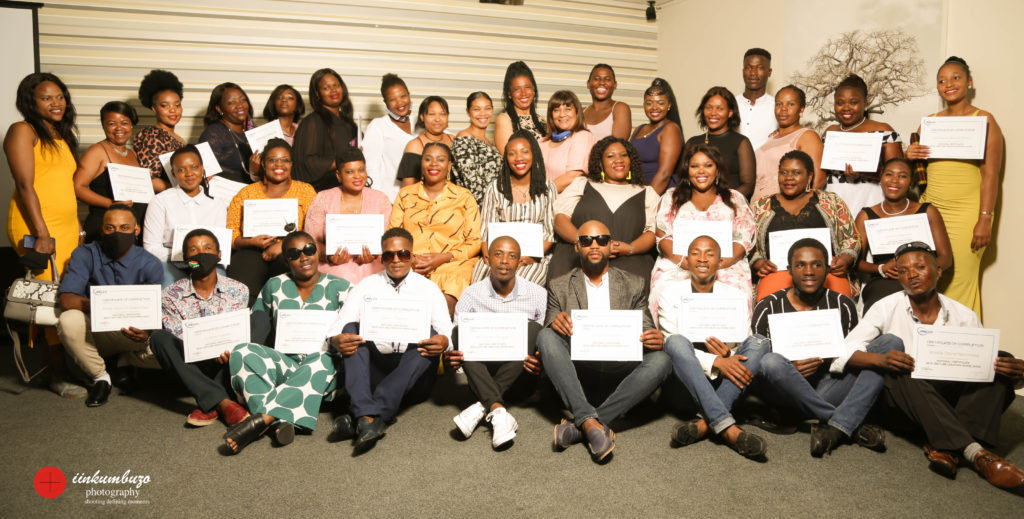Around 40 Makhanda entrepreneurs and would-be small business starters were recently awarded their New Venture Creation NQF 2 Qualification at a ceremony at the Graham Hotel.
Training provider Mecer Inter-Ed (MIE) was there with them to celebrate their achievement, along with Makana Mayor Mzukisi Mpahlwa, Councillor Ramie Xonxa, Walter Sisulu University Project Manager: Dr Seboka Kopung, Executive Director: Marketing, Communication & Advancement Yonela Tukwayo, and WSU Director of Institutional Advancement: Silvanus Welcome.
Designed for learners who intend to set up their own ventures, or already have, the qualification forms the basis for them to capitalise on opportunities to start and grow sustainable businesses that form part of the mainstream economy. It puts them in a position to tender for business opportunities within the public and private sectors.
The course forms part of the one of the UIF -WSU Eastern Cape Learnership Project and Mecer Inter-Ed is one of the lead Service Providers.
The learners were among 300 across the Eastern Cape selected for the training. Graduate Albertina Fani, who runs her own catering company in Joza, Mabhanqo ,was very grateful for the opportunity.
“The course was great,” she said. “I registered my company and the training helped me manage the business and deal with customers.”
Fani’s customers are community weddings and parties – “smaller customers for now”. “This course really made a difference in my life,” Fani said. “Now I am able to calculate my costs so I know how much I need to charge.”
Lucky Ngcani, also fropm Makhanda, has likewise made a place for himself in the local community, doing photos and videos for community events. “The course was so useful,” Ngcani said. “I learnt how to register a business, write proposals, and how to work with other people as a business person.”
Project Manager Dr Seboka Kopung said the course was excellent. “It helped give the students a wider perspective and guided them starting their own ventures.”
Smith said the project was completed in the allocated timeframe despite the challenges of the pandemic and 96% of the 300 learners achieved Competent status.”



